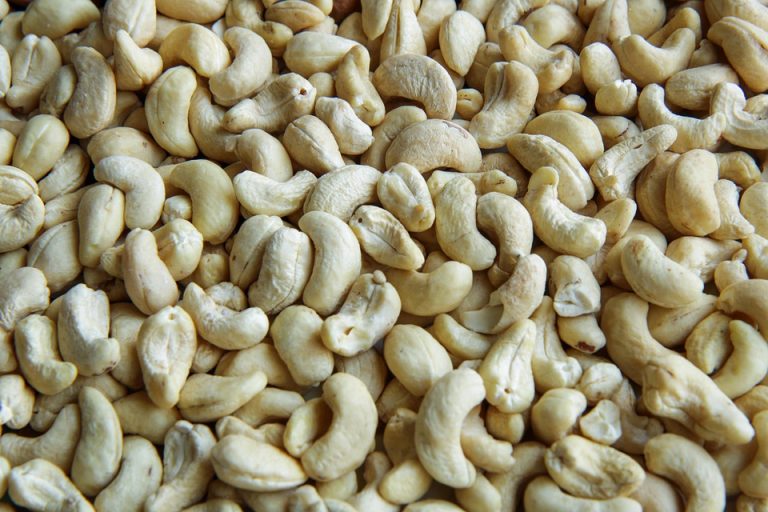A whole food diet can transform your life in ways you might never have imagined. This isn’t just about eating fruits and vegetables; it’s about embracing the vibrant, nourishing foods that nature has to offer. When you commit to this lifestyle, you unlock a treasure trove of health benefits that not only enhance your physical well-being but also enrich your emotional and mental health.
Contents
What Is a Whole Food Diet?
A whole food diet focuses on foods that are as close to their natural state as possible. Think fresh fruits, vegetables, whole grains, nuts, seeds, and legumes. This diet excludes processed foods, refined sugars, and artificial ingredients.
Why does this matter? You are what you eat—literally. The quality of your food impacts how your body functions, your mood, and even your overall happiness. It’s time to dig deep into the surprising benefits of nourishing your body with whole foods.
1. Enhanced Nutrient Intake
When you switch to a whole food diet, you’re not just eating fewer processed foods; you’re consuming a wealth of nutrients. Whole foods are packed with vitamins, minerals, antioxidants, and fiber.
- Vitamins A, C, and E: Essential for your immune system and skin health.
- B vitamins: Important for energy and brain function.
- Antioxidants: Help fight inflammation and oxidative stress.
More nutrients mean your body has the tools it needs to function at its best.
2. Weight Management Made Easy
Struggling with your weight? A whole food diet can help. Whole foods are naturally lower in calories and higher in fiber, which keeps you fuller for longer.
- Fiber-rich foods: Help regulate your digestion and prevent overeating.
- Natural satiety: You’ll find yourself feeling satisfied without counting every calorie.
It’s a sustainable approach to weight management that doesn’t rely on fad diets or deprivation.
3. Improved Digestive Health
Your gut deserves the best, and a whole food diet provides just that. Foods rich in fiber, like fruits, vegetables, and whole grains, promote healthy digestion.
- Fiber: Helps maintain bowel regularity.
- Probiotics: Found in whole foods like fermented vegetables, support gut health.
When your digestive system is happy, your entire body benefits.
4. Boosted Energy Levels
Feeling sluggish? A whole food diet can be your secret weapon against fatigue.
- Complex carbohydrates: Found in whole grains provide sustained energy.
- Nutrient-dense foods: Fuel your body, keeping your energy levels stable throughout the day.
Say goodbye to those afternoon slumps!
5. Heart Health Benefits
Heart disease is a leading cause of death, but a whole food diet can significantly reduce your risk. Whole foods are heart-healthy, rich in fiber, and low in unhealthy fats.
- Fruits and vegetables: Packed with potassium, help lower blood pressure.
- Whole grains: Reduce cholesterol levels and improve heart health.
Your heart will thank you for making this simple, yet impactful change.
6. Mood Enhancement
Did you know your diet can affect your mood? A whole food diet can lead to better mental health.
- Nutrient-rich foods: Support brain function and mood regulation.
- Omega-3 fatty acids: Found in certain whole foods, can help combat depression.
With a balanced diet, you can boost your emotional well-being.
7. Stronger Immune System
Your immune system needs support, and a whole food diet delivers. The antioxidants and vitamins in whole foods help strengthen your defenses.
- Vitamin C-rich foods: Like citrus fruits, are known to boost immunity.
- Zinc: Found in nuts and seeds, plays a crucial role in immune function.
Keep your body resilient against illnesses with the right fuel.
8. Better Skin Health
Want glowing skin? A whole food diet can make a difference. The nutrients in whole foods nourish your skin from the inside out.
- Antioxidants: Fight free radicals that cause skin aging.
- Healthy fats: Found in avocados and nuts keep your skin hydrated.
Your skin will reflect the love you give it through your food choices.
9. Reduced Inflammation
Chronic inflammation is linked to many diseases, but a whole food diet can help combat it. Whole foods are naturally anti-inflammatory.
- Fruits and vegetables: Contain phytonutrients that reduce inflammation.
- Healthy fats: Like those in olive oil and fish, can also lower inflammation levels.
Goodbye, chronic pain!
10. Sustainable Lifestyle Choice
Making a shift to a whole food diet isn’t just beneficial for you; it’s good for the planet.
- Local, seasonal foods: Tend to have a lower carbon footprint.
- Reduced packaging waste: Whole foods often come with less packaging than processed foods.
You’re not just making a choice for your health; you’re contributing to a healthier planet.
Bottom Line
A whole food diet can bring transformative benefits to your life. From improved energy levels and better skin to a stronger immune system and sustainable choices, the advantages are both surprising and powerful. The journey may feel challenging at first, but each step toward whole foods is a step toward a happier, healthier you.
So, why not start today? Your body, mind, and the planet will thank you.
FAQ
What are some examples of whole foods?
Whole foods include fruits, vegetables, whole grains, nuts, seeds, and legumes.
Can I still enjoy my favorite meals on a whole food diet?
Absolutely! You can modify your favorite meals by using whole food ingredients.
Is a whole food diet expensive?
Whole foods can often be more affordable than processed foods, especially when you buy in bulk or shop seasonally.
For more information on the benefits of whole foods, you can visit the American Heart Association and Harvard Health Publishing. Embrace the power of whole foods, and watch your life transform!
Get Your FREE Natural Health Guide!
Subscribe now and receive our exclusive ebook packed with natural health tips, practical wellness advice, and easy lifestyle changes, delivered straight to your inbox.




